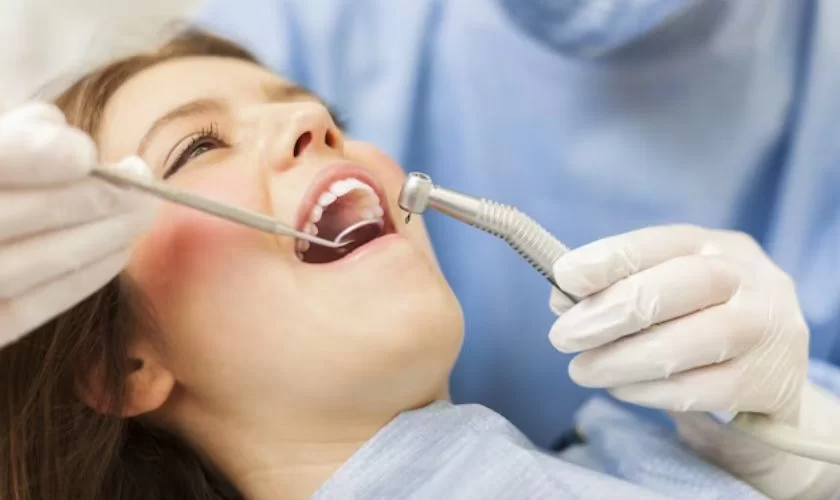
How Does Stress Affect My Oral Health and Teeth? Understanding the Link Between Stress and Oral Care
- How Stress Impacts Oral Health
- Common Stress-Related Dental Problems
- Teeth Grinding and Bruxism from Stress
- The Connection Between Stress and Gum Disease
- How to Protect Your Teeth and Gums from Stress
How Stress Impacts Oral Health
Stress is a common part of modern life, but its effects on your oral health might surprise you. From teeth grinding to gum disease, chronic stress can cause serious damage to your mouth and teeth. While stress doesn't directly cause cavities, it can contribute to behaviors and conditions that increase your risk for dental issues.
When you experience stress, your body produces higher levels of the hormone cortisol, which can affect your immune system and your ability to fight off infections. As a result, stress can make your gums more vulnerable to inflammation and infection. It also impacts your overall oral hygiene habits, making it harder to maintain good dental health.
Teeth Grinding and Bruxism from Stress
One of the most common ways that stress affects oral health is through teeth grinding, a condition known as bruxism. People under stress often clench their jaw or grind their teeth, especially at night. This can result in worn-down enamel, tooth sensitivity, jaw pain, and even headaches.
If left untreated, bruxism can lead to cracked or chipped teeth, which may require restorative dental work. The good news is that there are ways to manage teeth grinding. Wearing a custom-made night guard, reducing stress through relaxation techniques, and seeking professional dental care are key steps to protecting your teeth from the effects of bruxism.
The Connection Between Stress and Gum Disease
Stress has a direct impact on the health of your gums. Research has shown that individuals experiencing high levels of stress are more likely to develop gum disease. Stress can cause your body to produce more inflammatory chemicals, which can make your gums more prone to infection. Furthermore, when you're stressed, you may neglect your oral hygiene routine, leading to plaque buildup and gum issues.
Gum disease begins as gingivitis—characterized by swollen, bleeding gums—and can progress to more severe stages, such as periodontitis, if not treated. This can lead to tooth loss, as well as systemic health problems, including heart disease. Managing stress effectively can help reduce the risk of developing gum disease and maintain a healthier smile.
How to Protect Your Teeth and Gums from Stress
Taking proactive steps to manage stress is crucial for protecting your oral health. Here are some effective strategies:
- Practice Stress-Reduction Techniques: Regular exercise, deep breathing, meditation, or yoga can help you relax and lower cortisol levels, reducing the impact of stress on your oral health.
- Maintain a Consistent Oral Hygiene Routine: Brushing twice a day, flossing daily, and visiting your dentist regularly can help prevent the buildup of plaque and bacteria, which can lead to gum disease and tooth decay.
- Wear a Night Guard: If you grind your teeth at night, a custom-made night guard can protect your teeth from damage caused by bruxism.
- Stay Hydrated: Drinking plenty of water can help combat dry mouth, a common side effect of stress. It also helps to rinse your mouth with an alcohol-free mouthwash to keep your mouth moist and fresh.
- Talk to Your Dentist: If you're experiencing symptoms of stress-related dental problems, such as jaw pain or gum inflammation, consult your dentist. They can recommend appropriate treatments and preventive measures to safeguard your oral health.
By managing stress and staying on top of your oral hygiene, you can significantly reduce the risk of dental problems caused by stress and maintain a healthy smile.
If you're looking to improve your oral care and protect your teeth from the effects of stress, visit Dentistry Toothtruth for expert advice and a wide range of oral health products designed to support your dental wellness. Explore our latest products to help combat stress-related oral issues and keep your smile healthy.







 Coast Dental4.0 (257 review)
Coast Dental4.0 (257 review) Diamond Braces Orthodontist: Braces & Invisalign5.0 (1 review)
Diamond Braces Orthodontist: Braces & Invisalign5.0 (1 review) Lincolnshire Dental Care4.0 (154 review)
Lincolnshire Dental Care4.0 (154 review) Periodontology Inc.4.0 (168 review)
Periodontology Inc.4.0 (168 review) Dental365 - Bellmore4.0 (318 review)
Dental365 - Bellmore4.0 (318 review) Baldwin Cosmetic Dentistry2.0 (4 review)
Baldwin Cosmetic Dentistry2.0 (4 review) The Importance of Oral Health Education During Pregnancy for a Healthy Pregnancy
The Importance of Oral Health Education During Pregnancy for a Healthy Pregnancy Best Tips for Brushing Your Teeth Properly for Healthy Gums: Essential Techniques for Oral Health
Best Tips for Brushing Your Teeth Properly for Healthy Gums: Essential Techniques for Oral Health Why Skipping Dental Checkups Can Lead to Bigger Oral Health Problems
Why Skipping Dental Checkups Can Lead to Bigger Oral Health Problems Advantages of Porcelain Dental Restorations
Advantages of Porcelain Dental Restorations How Can Diabetes Cause Tooth and Gum Problems? Preventing and Managing Oral Health Issues
How Can Diabetes Cause Tooth and Gum Problems? Preventing and Managing Oral Health Issues Healthy Habits for Promoting Good Oral Health and Hygiene: Tips for a Healthy Smile
Healthy Habits for Promoting Good Oral Health and Hygiene: Tips for a Healthy Smile